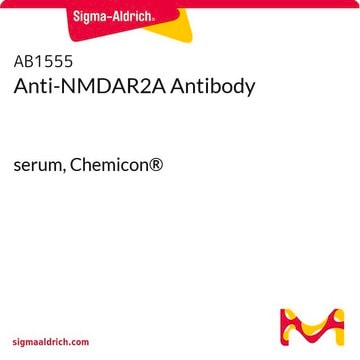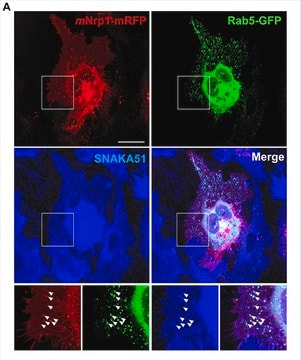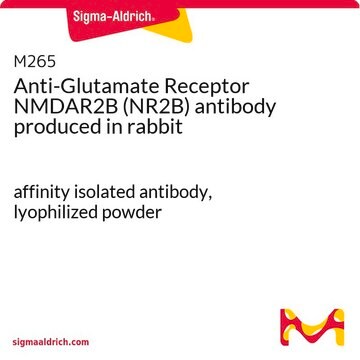04-901
Anti-NR2A Antibody, clone A12W, rabbit monoclonal
culture supernatant, clone A12W, Upstate®
Synonym(s):
Anti-EPND, Anti-FESD, Anti-GluN2A, Anti-LKS, Anti-NMDAR2A, Anti-NR2A
About This Item
Recommended Products
biological source
rabbit
Quality Level
antibody form
culture supernatant
antibody product type
primary antibodies
clone
A12W, monoclonal
species reactivity
mouse, rat
manufacturer/tradename
Upstate®
technique(s)
western blot: suitable
isotype
IgG
NCBI accession no.
UniProt accession no.
shipped in
dry ice
target post-translational modification
unmodified
Gene Information
human ... GRIN2A(2903)
Specificity
Immunogen
Application
Neuroscience
Neurotransmitters & Receptors
Quality
Target description
Physical form
Storage and Stability
Handling Recommendations: Upon receipt, and prior to removing the cap, centrifuge the vial and gently mix the solution. Aliquot into microcentrifuge tubes and store at -20°C. Avoid repeated freeze/thaw cycles, which may damage IgG and affect product performance.
Legal Information
Disclaimer
Not finding the right product?
Try our Product Selector Tool.
recommended
Storage Class Code
10 - Combustible liquids
WGK
WGK 1
Certificates of Analysis (COA)
Search for Certificates of Analysis (COA) by entering the products Lot/Batch Number. Lot and Batch Numbers can be found on a product’s label following the words ‘Lot’ or ‘Batch’.
Already Own This Product?
Find documentation for the products that you have recently purchased in the Document Library.
Our team of scientists has experience in all areas of research including Life Science, Material Science, Chemical Synthesis, Chromatography, Analytical and many others.
Contact Technical Service








